In Rwanda’s refugee camps, young women and men are rewriting their stories with hope and resilience. By establishing small-scale businesses, they are attaining financial independence, and driving community-centred initiatives, paving the way for a brighter future. Among them are Patience, Sifa, Nadia and Eric, each a beacon of change for their communities.
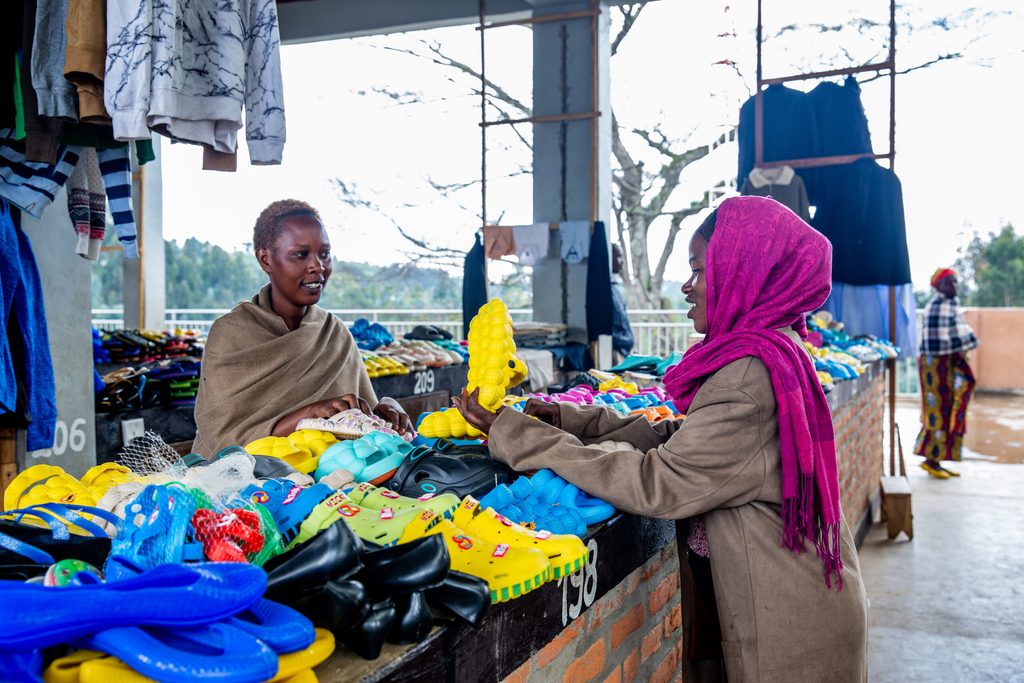
Patience, Sifa, Nadia and Eric are young refugee entrepreneurs whose transformative businesses are improving lives across refugee and host communities. These young people are using their membership in a savings group to take out small loans and start businesses.
Patience
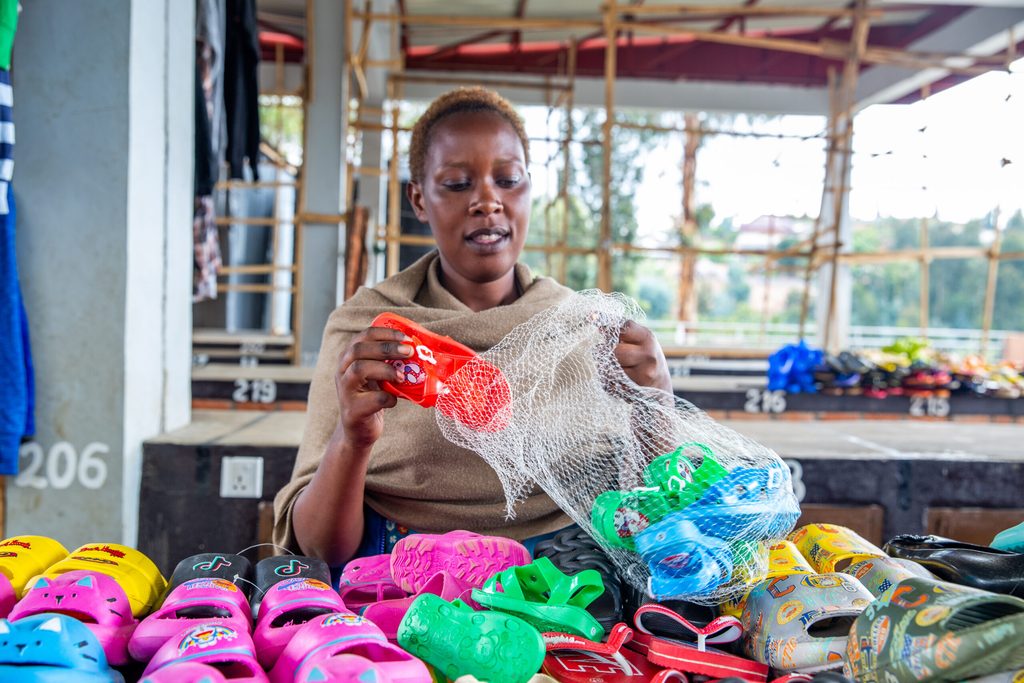
At 24, Patience is a mother of 2 and one of 6 siblings in her family. She recalls how she used to find it challenging to provide for her children and often felt unable to see a way forward before joining the savings group.
“I face deep uncertainty as a young mother without employment. Everything changed when I secured a small loan of Rwf 120,000. It allowed me to start a small shoe business, and today, I can support my children and myself,” Patience shares.
Today, Patience meets her family’s needs and saves Rwf 20,000 monthly. Each week, she buys shoes for resale, earning up to Rwf 3,000 per pair. Her resourcefulness has not only enabled her to support her family but has also inspired others in her community.
Sifa
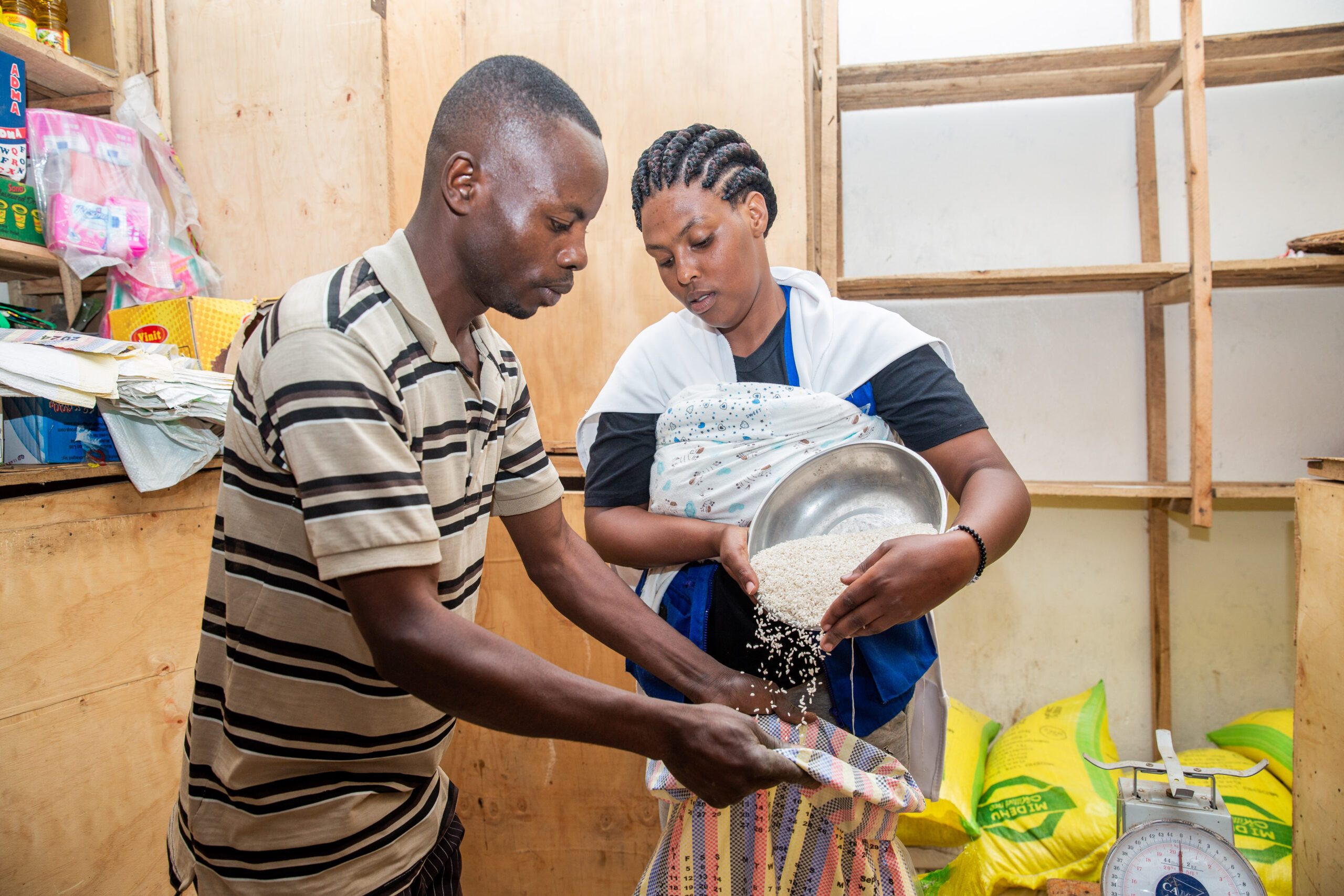
For 12 years, Sifa has lived in a refugee camp, facing constant challenges and relying financially on her parents. However, she seized an opportunity to start a small business, marking a bold step forward.
“With a loan of Rwf 200,000 from my savings group, I started a small business selling beans, and later expanded to rice and maize flour. This has enabled me to support my family and contribute financially to our future,” Sifa says.
Sifa manages to save Rwf 10,000 monthly and works alongside her husband to build a stable life for their family.
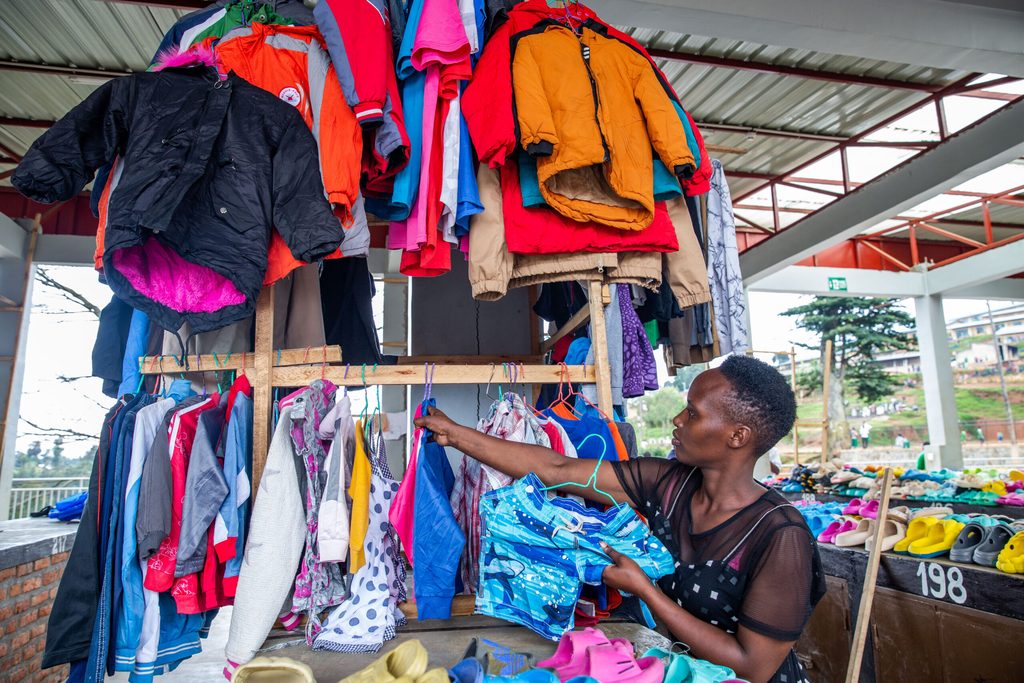
Nadia
At 23, Nadia is shaping a new future for herself and her child. Life as a refugee had been marked by unemployment and reliance on her family, who already faced challenges supporting her 5 siblings.
Nadia joined a savings group and borrowed Rwf 200,000 to start a clothing business.
“Selling clothes has not only provided me with an income but also a sense of independence. Financial support empowers us, as young women, to avoid risky paths, especially those related to sexual temptations due to poverty, and to focus on building our lives,” Nadia shares.
Nadia primarily sells pullovers, saving up to Rwf 25,000 monthly from her business income.
She dreams of becoming an agri-preneur, growing food and selling it to both her refugee and host communities.
Eric
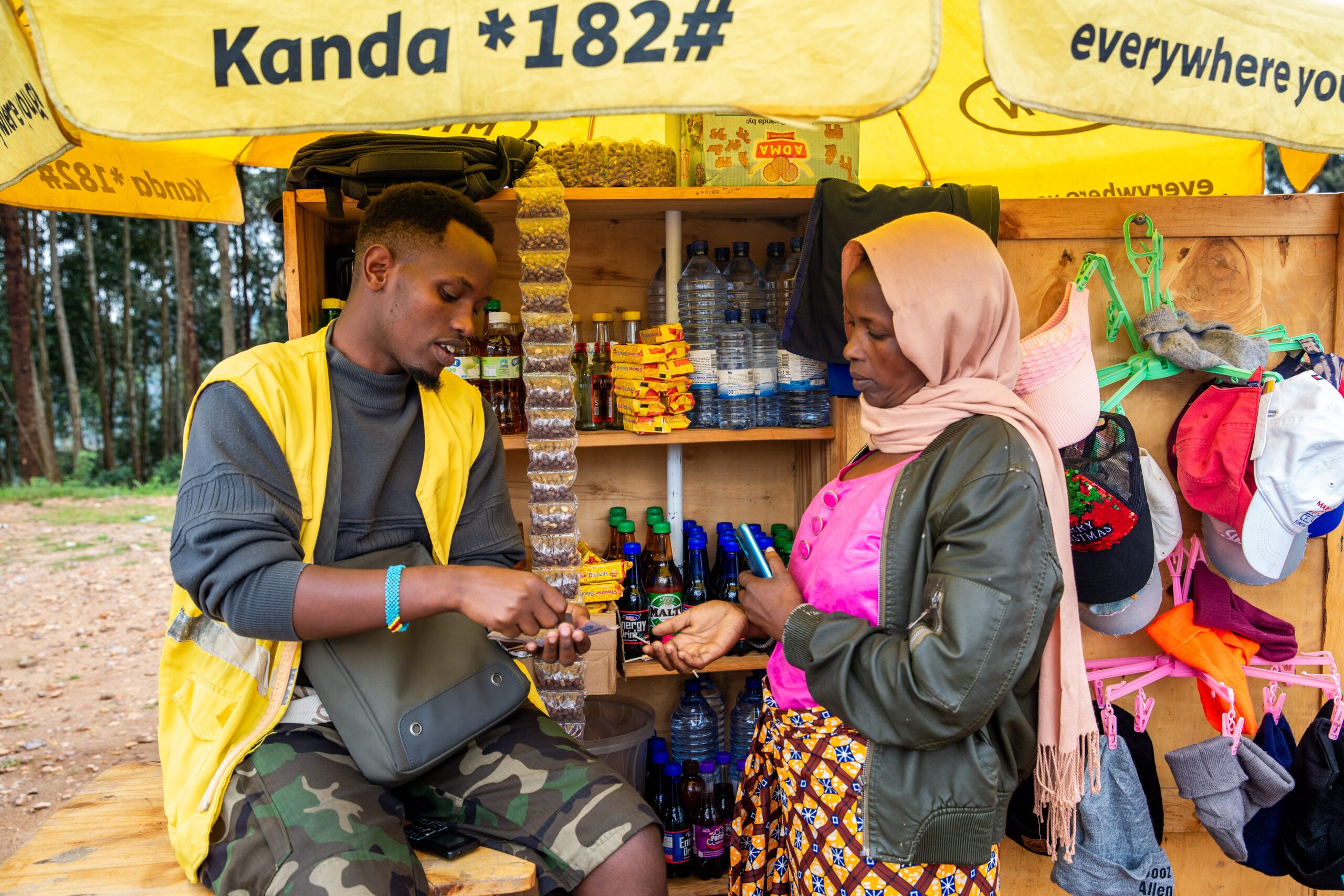
Eric, 26, plays a pivotal role in his community, contributing to its socio-economic development both as a Champion of Change agent and a mobile money businessman.
As the eldest of 6 children, Eric was unemployed and spent his days without much direction.
“With a loan of Rwf 200,000, I launched a mobile money business in my community, which I later expanded to include clothing and small items. My key dream is to open a fully stocked shop that will serve my community,” Eric says, brimming with optimism.
Eric proudly shares that his hard work now not only meets his family’s daily needs but also allows him to save Rwf 80,000 each month. This steady income has brought a sense of stability to his household and has enabled him to plan for the future.
About the project, engaging refugee youth
The Village Savings and Loan Associations (VSLAs) that these youth are part of were established through the ‘Tuganire Mwali’ initiative, part of the Better Live Options and Opportunities Models (BLOOM). BLOOM is a youth group that trains adolescent girls to set meaningful future goals, partnered with Champions of Change (CoC) that trains boys to become advocates for gender equality. Together they are driving socio-economic change.
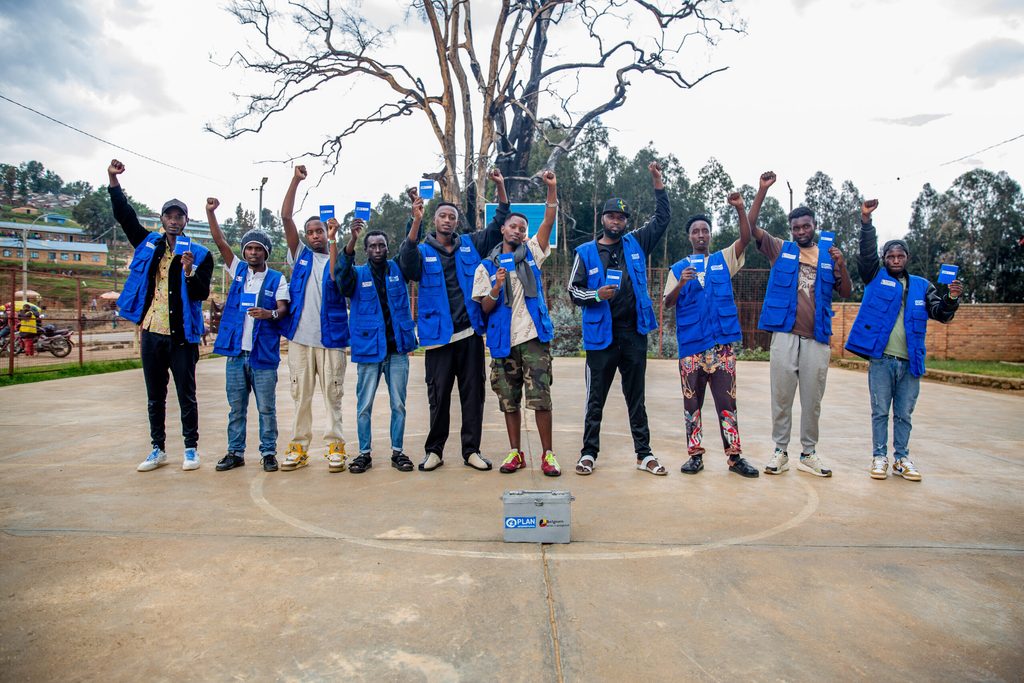
The VSLA groups enable participants to access small loans, empowering them to establish businesses that pave way for a more secure and prosperous future. Through BLOOM and CoC, 8 VSLAs have been established, engaging 80 female and 80 male participants.
BLOOM youth mentors have brought together 100 adolescent girls, and male Champions of Change mentors 100 adolescent boys, and dedicate their time to coaching adolescents from refugee and host communities on setting meaningful future goals. They do this as part of the “Building Resilience and Protection of Children, Adolescents and Youth Living in Refugee Camps, and Vulnerable Communities in Rwanda Project,” active in 6 Congolese refugee camps: Nyabiheke, Kigeme, Mugombwa, and Kiziba.
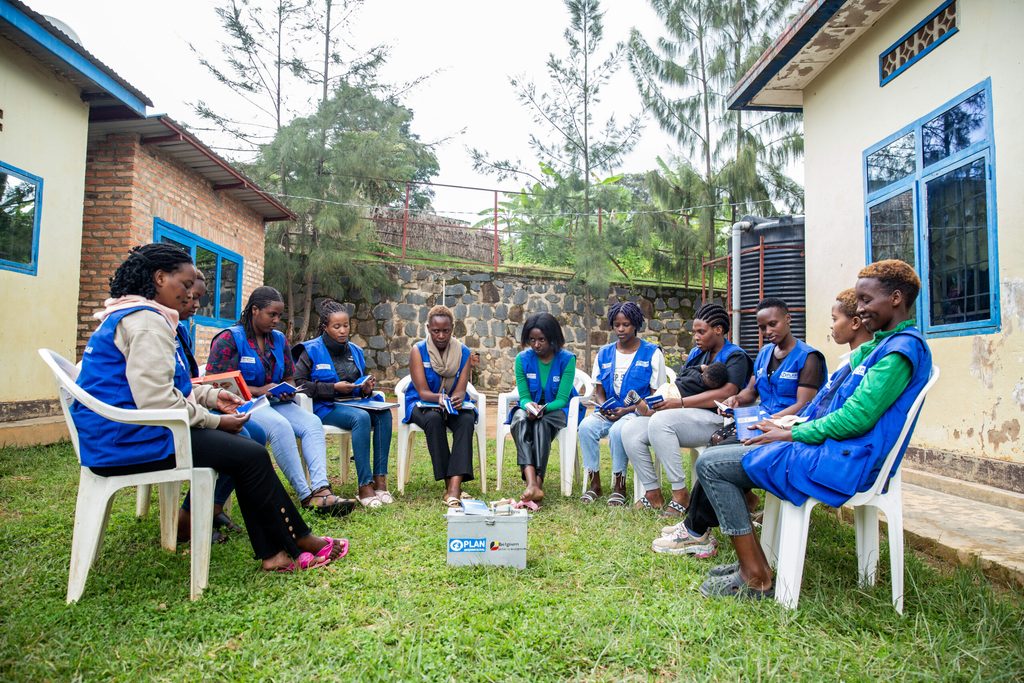
The project is implemented by Plan International Rwanda and funded by the Directorate General for Development through Plan International Belgium. Its aim is to build protective environments for refugee families and communities, enabling children and adolescents to thrive and remain safe from various forms of violence amidst humanitarian crises.
Additionally, the project includes the establishment of safe spaces for girls, the creation of employment opportunities, advancements in gender equality, and initiatives promoting future savings, among other objectives.


